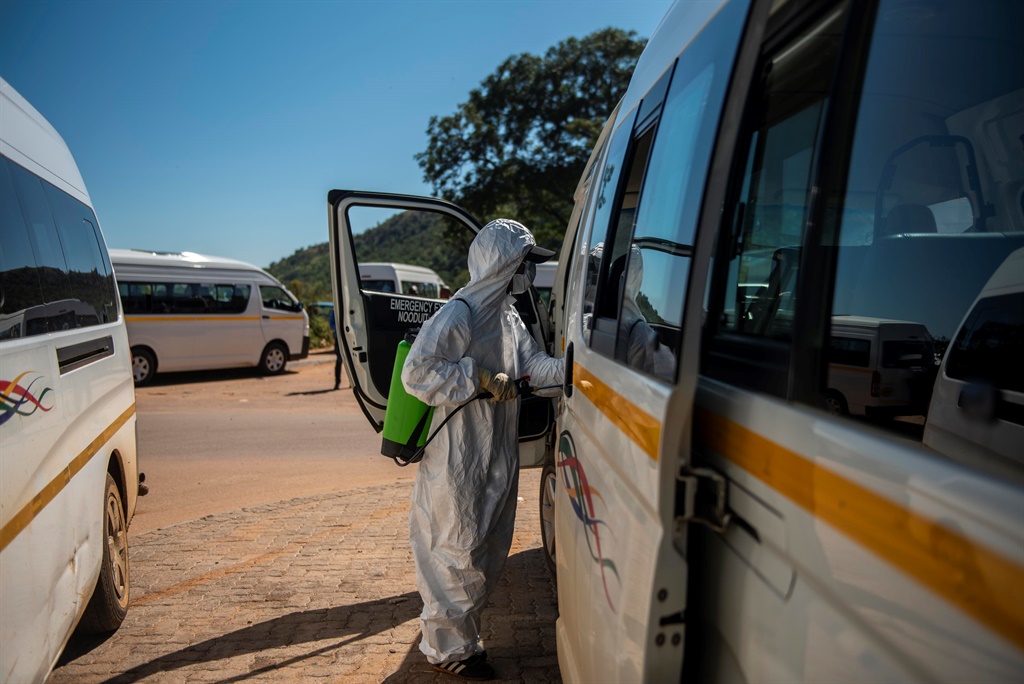


Commuters taxis being disinfected. (Alet Pretorius/Gallo Images)
- More than R1 billion in relief funding has been allocated to the taxi industry due to the impact of Covid-19 on it.
- It’s the highest relief support compared to other affected sectors.
- The taxi industry has called for regulation reviews and wants 100% passenger capacity to be brought back.
More than a billion rand in relief has been allocated to the taxi industry to aid thousands of taxis and their operators during the Covid-19 pandemic, Transport Minister Fikile Mbalula has said.
“Government has offered the taxi industry a relief package of R1.135 billion. Reaching agreement within government for this relief support for the taxi industry was a difficult process that involved extensive lobbying and convincing the relevant authorities on the importance and need for this fund,” he said on Friday.
Most sub-sectors of government received an average maximum of R350 million, but taxi relief support was the highest, Mbalula said.
In contextualising the taxi relief support, it is important to understand that this is among the largest relief packages for any economic sub-sectors provided for by government.
Mbalula emphasised that the funding to the industry was “not compensation for loss of revenue as a result of Covid-19 restrictions, but rather assistance [from] government within the available resources and means”.
“This relief must be equally looked at through a long-term view of the opportunity created by [the] Covid-19 pandemic to achieve long-term sustainability of the industry through formalisation and ultimately, subsidisation.”
WATCH | Masks, taxis and fear: How Covid-19 has changed Khayelitsha
Proposed changes to regulations
Mbalula said the taxi industry had also called for a review of regulations to allow loading capacity to be increased from 70% to 100%.
“[This would be done] with all passengers wearing masks and with regular sanitisation of vehicles after each journey as mitigation measures.”
However, he said this had to be a collective decision that would include the National Coronavirus Command Council.
He said the industry also called for inter-provincial travel, but said this would have to be subjected to “the intra-governmental processes outlined”.
Mbalula said that due to the reduction in the number of passengers allowed, the restriction of inter-provincial travel and time restrictions, the taxi industry was hard hit by the Covid-19 lockdown.
“All of the above these meant that the taxi industry was operating less than 60% of its fleet size, and carried 30% less of its licensed carrying capacity. Almost 20% or more of the taxi industry experienced total loss of income.”
The taxi industry is the largest carrier of passengers in South Africa, transporting around 5.4 million people on a daily basis, according to Mbalula.
The industry generates in excess of R40 billion annually with anything between 250 000 to 300 000 taxis that generates approximately 350 000 direct and indirect job opportunities including drivers, rank marshals and other administrative support staff.

